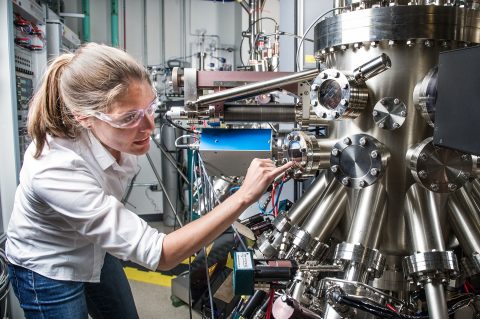Quality Systems Engineering (MASc)
Program overview
The Master of Applied Science in Quality Systems Engineering has two main objectives. First, to provide students with the skills and technical expertise needed to design, analyze, implement and manage quality systems. Second, to maximize students' potential as researchers in the fields of quality systems, lean engineering and supply chain management. Those enrolled in the program will engage in applied research and coursework, examining existing theories and methods that currently influence the quality of systems, services, products and processes.
Program structure
Degree Requirements
The requirements described here are in addition to the general degree requirements for the Master/Magisteriate in Applied Science (MASc).
Fully-qualified candidates are required to complete a minimum of 45 credits.
Please see the Engineering Courses page for course descriptions.
Quality Systems Engineering MASc (45 credits)
| 8 | credits chosen from INSE Topic Areas: E67 - 3D Graphics and Intelligent Systems E68 - Quality Systems Engineering E70 - Information Systems Engineering |
| 4 | credits chosen from the following INSE Topic Areas: E67 - 3D Graphics and Intelligent Systems E68 - Quality Systems Engineering E70 - Information Systems Engineering |
| Students may choose these 4 credits from courses outside of these topic areas with approval of the Graduate Program Director or the Director of the Institute. | |
| 4 | credits chosen from courses offered by the Gina Cody School of Engineering and Computer Science. |
| 29 | credits: |
Admission requirements
Admission Requirements
- Bachelor’s degree or equivalent in Mechanical Engineering, Industrial Engineering, Electrical Engineering, Building Engineering, Civil Engineering, Environmental Engineering, Software Engineering, Computer Science, or any engineering or science discipline provided that the student has the appropriate background.
Proficiency in English
Proficiency in English. Applicants whose primary language is not English must demonstrate that their knowledge of English is sufficient to pursue graduate studies in their chosen field. Please refer to the English language proficiency page for further information on requirements and exemptions.
Application process
Application deadlines

FALL
July 1 (Canadian resident)
March 1 (U.S. and international)

WINTER
November 1 (Canadian resident)
July 1 (U.S. and international)

SUMMER
March 1 (Canadian resident)
November 1 (U.S. and international)
Priority will be given to complete applications submitted by the deadline. In some cases, programs may continue to accept applications as long as there is space available.
International students: Considering the waiting period involved in meeting the entry requirements to Canada and Quebec, we strongly encourage international applicants to apply early and submit supporting documents prior to the deadline.
Tuition & funding
Tuition and fees
Tuition and fees of the program may depend on your student status, among other key factors. Estimate these costs based on the most common situations.
Awards and funding
Funding packages are generally available for students in thesis-based programs. They come in the form of awards, teaching and research assistantships are offered at the time of admission to most students to allow them to focus on their research and studies. Research and thesis-based students are automatically considered for all entrance graduate awards when they apply to Concordia, provided they meet eligibility criteria. No separate application is required.
The Quebec and Canadian governments offer a number of competitive graduate scholarships. We encourage you to apply for these awards at the same time you are preparing your application.
Out-of-province students
Get $10,000 in special funding for thesis master's programs. Learn more
Other programs of interest

Acquire the skills and technical expertise required to design, analyze and manage quality systems. Examine the methods that currently influence the quality of systems, services, products and processes.
Department
Concordia Institute for Information Systems Engineering
Faculty

